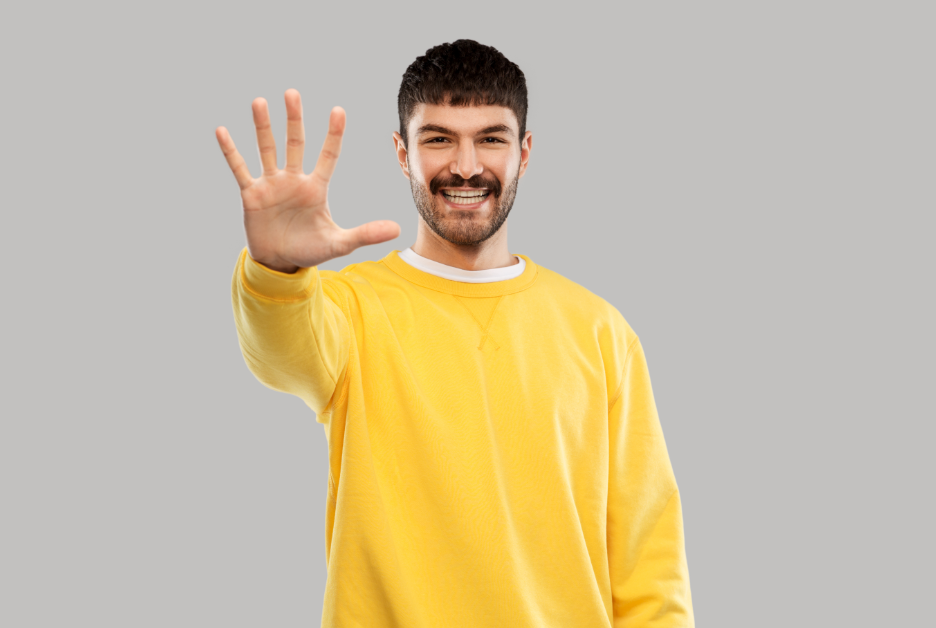
As millions of Americans have raced to receive the COVID-19 vaccine, millions of others have held back. Vaccine hesitancy is nothing new, of course, especially with new vaccines, but the information people use to weigh their decisions matters greatly. When choices based on flat-out wrong information can literally kill people, it's vital that we fight disinformation every which way we can.
Researchers at the Center for Countering Digital Hate, a not-for-profit non-governmental organization dedicated to disrupting online hate and misinformation, and the group Anti-Vax Watch performed an analysis of social media posts that included false claims about the COVID-19 vaccines between February 1 and March 16, 2021. Of the disinformation content posted or shared more than 800,000 times, nearly two-thirds could be traced back to just 12 individuals. On Facebook alone, 73% of the false vaccine claims originated from those 12 people.
Dubbed the "Disinformation Dozen," these 12 anti-vaxxers have an outsized influence on social media. According to the CCDH, anti-vaccine accounts have a reach of more than 59 million people. And most of them have been spreading disinformation with impunity.
"Despite repeatedly violating Facebook, Instagram and Twitter's terms of service agreements, nine of the Disinformation Dozen remain on all three platforms, while just three have been comprehensively removed from just one platform," the report states. It also says platforms fail to act on 95% of the COVID and vaccine misinformation that is reported to them.
NPR has reported that Facebook has taken down more of the accounts following the publishing of its article on the CCDH analysis.
Despite many people's understandable resistance to censorship, health disinformation carries a great deal of weight—and consequence. As the CCDH writes, "The public cannot make informed decisions about their health when they are constantly inundated by disinformation and false content. By removing the source of disinformation, social media platforms including Facebook, Instagram and Twitter can enable individuals to make a truly informed choice about vaccines."
So who are these 12 individuals? The report names them and provides some basic info about them starting on page 12 of the report (which you can read here). They are:
1. Joseph Mercola
2. Robert F. Kennedy, Jr.
3. Ty and Charlene Bollinger
4. Sherri Tenpenny
5. Rizza Islam
6. Rashid Buttar
7. Erin Elizabeth
8. Sayer Ji
9. Kelly Brogan
10. Christiane Northrup
11. Ben Tapper
12. Kevin Jenkins
Several of these folks are physicians, which ups their credibility in the eyes of their followers. But as vaccine skeptics themselves say, "Follow the money." These anti-vaxxer influencers rake in the dough by preying on people's paranoia with monetized websites and social media posts, as well as by selling books and supplements.
Some of them may be "true believer" conspiracy theorists and some of them may be opportunistic grifters, but they all benefit from misinformation mongering.
In addition to these individuals, the report names organizations linked to them, including:
- Children's Health Defense (Robert F. Kennedy, Jr.)
- Informed Consent Action Network (ICAN) (Del Bigtree)
- National Vaccine Information Center (NVIC) (Barbara Loe Fisher, Joseph Mercola)
- Organic Consumers Association (OCA) (Joseph Mercola)
- Millions Against Medical Mandates
Don't the names chosen for these organizations sound like things many people would support? Who isn't in favor of defending children's health or informed consent? The "National Vaccine Information Center" sounds downright official, right? Organic consumers? That's me. How would people know whether or not these organizations were trustworthy sources of information, especially if people they know and love are sharing posts from them?
They wouldn't. That's the entire problem.
The report offers suggestions for how to handle misinformation pushers, starting with deplatforming.
"The most effective and efficient way to stop the dissemination of harmful information is to deplatform the most highly visible repeat offenders, who we term the Disinformation Dozen. This should also include the organisations these individuals control or fund, as well as any backup accounts they have established to evade removal."
The CCDH also recommends platforms "establish a clear threshold for enforcement action" that serve as a warning before removing someone and present warning screens and effective correction to users when a link they attempt to click leads to a source known to promote anti-vaccine misinformation. In addition, the report recommends that Facebook not allow private and secret anti-vaccine Groups "where dangerous anti-vaccine disinformation can be spread with impunity."
Finally, the CCDH recommends instituting an Accountability API "to allow experts on sensitive and high-importance topics to perform the human analysis that will ultimately make Facebook's AI more effective."
The information age is also the misinformation and disinformation age, unfortunately. When it's people pushing that the moon landing was a hoax, it's annoying, but when it's people pushing falsehoods about a deadly pandemic and the life-saving vaccines that can end it, we can't just brush it off with an eye roll. Disinformation is dangerous, figuring out how to stop it is tricky, but at least knowing where most of it comes from might give us a chance to limit its spread.
- Misinformation has consequences. In a pandemic, those ... ›
- She's an expert at spotting fake news. This is what she wants you to ... ›
- Can you tell a real social media account from a fake one? It's harder ... ›
- Ben Franklin had to deal with anti-vaxers during smallpox - Upworthy ›
- U.S. women's soccer team did not turn away from the flag - Upworthy ›
- Here's how to handle needle fear so you can be vaccinated - Upworthy ›
- Statisticians explain COVID hospitalizations with vaccine - Upworthy ›
- Funeral home truck has simple message: 'Don't get vaccinated' - Upworthy ›
- Funeral home truck has simple message: 'Don't get vaccinated' - Upworthy ›
- An anti-vaxxer had his mind changed over beers with a doctor. - Upworthy ›
- An anti-vaxxer had his mind changed over beers with a doctor. - Upworthy ›
- WA state trooper wants colleagues to be safe but refuses vax - Upworthy ›
- Vaccine mandates are effective, popular, and maddening - Upworthy ›
- Vaccine mandates are effective, popular, and maddening - Upworthy ›
- Republican Congresswoman flip-flips on vaccines - Upworthy ›
- The U.S. Army is developing a new covid-19 vaccine - Upworthy ›
- The U.S. Army is developing a new covid-19 vaccine - Upworthy ›
- The pope says getting vaccinated is a 'moral obligation' ›
- The pope says getting vaccinated is a 'moral obligation' - Upworthy ›
- A proven way to stop online misinformation - Upworthy ›
- Fact check: The CDC is not mandating COVID vaccines in kids - Upworthy ›
- Fact check: The CDC is not mandating COVID vaccines in kids - Upworthy ›
- Simple trick to changing misinformed people's minds - Upworthy ›



 A woman reading a book.via
A woman reading a book.via A woman tending to her garden.via
A woman tending to her garden.via
 A person on Threads makes a typo.Photo credit: Threads/@maureenmzobe
A person on Threads makes a typo.Photo credit: Threads/@maureenmzobe
 Cats can be finicky about how they're held.
Cats can be finicky about how they're held.  Squish that cat.
Squish that cat. 

 Young man holds up his hand to show five.
Young man holds up his hand to show five. Two women having a conversation at a coffee shop.
Two women having a conversation at a coffee shop.  Two women talking as the leave a yoga class
Two women talking as the leave a yoga class